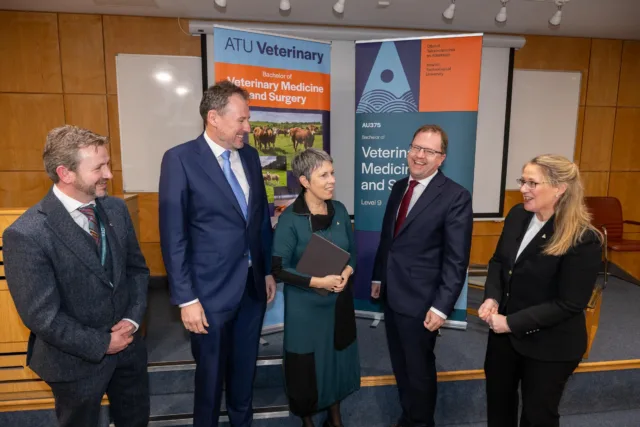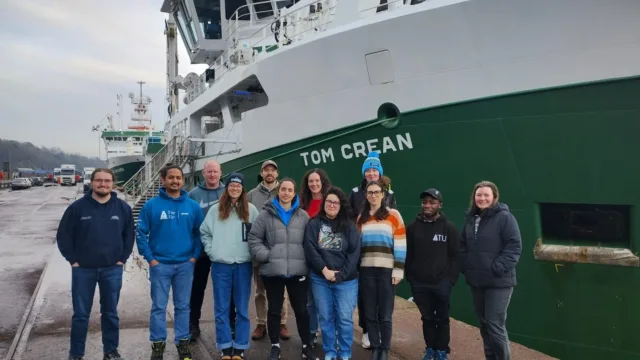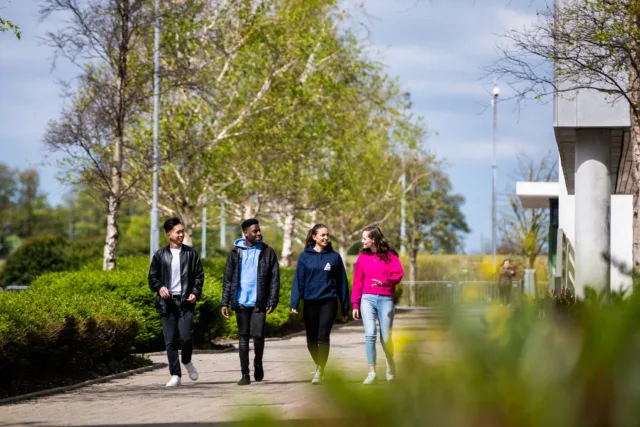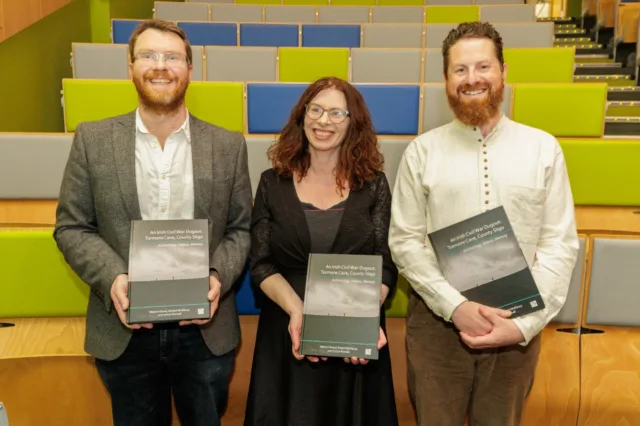Courses
Civic leaders come together to sign Greater Galway Charter
People interested in development of the region urged to consider supporting a vision for the future.
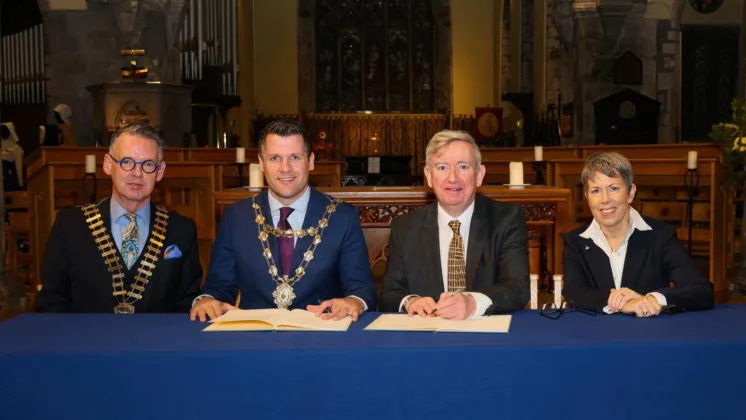
University of Galway and Atlantic Technological University (Galway) have come together with the Mayor of the City of Galway and the Galway Chamber to announce and sign the Greater Galway Charter – a manifesto for long-term strategic thinking and planning for the region.
The Greater Galway Charter has two main objectives:
- Firstly, it is an expression of the values which will deliver the kind of sustainable, inclusive, resilient and proud city which Galway can become over the next 50 years.
- Secondly, it is a manifesto for all cities looking to put vision-powered place-making at the heart of their long term strategic thinking and planning.
The Greater Galway Charter is intended as a living, working document which helps to stimulate cross community conversations about the kind of city and places signatories want for Galway by 2070, and the steps to begin today to deliver that 50-year vision.
The document was produced by the Academy of Urbanism with the support of the Royal Institute of the Architects of Ireland. It is available to read and endorse on the Academy of Urbanism website – https://www.theaou.org/resources/the-greater-galway-charter
Everyone interested in the future direction of development of Galway, and anyone who shares the passion for the city of the future, can sign up to signal support for the Charter and be part of the conversation.
The Charter was launched at a special ceremony at St Nicholas’ Collegiate Church, the setting for key moments in the history of Galway city over the past eight centuries. It builds on the established tradition of planning and design charters, including the Freiburg Charter of 2012, which is credited with encapsulating the transformation of the city in Germany’s Black Forest region, confirming it as a global leader in sustainable, community-centred urban planning and design.
The initial signatories were Mayor of the City of Galway, Fine Gael Councillor Eddie Hoare; President of University of Galway, Professor Ciarán Ó hÓgartaigh; President of Atlantic Technological University, Dr Orla Flynn; and President of Galway Chamber of Commerce, Dermot Nolan.
Mayor of the City of Galway, Councillor Eddie Hoare said: “The signing of the Galway Charter represents an enormous opportunity for discussion and real public engagement on the challenges and the unique opportunity which we face into here in the city of Galway.”
Professor Ciarán Ó hÓgartaigh said: “When I was growing up, as Gaeilge we called Gaillimh ‘an baile mór’. Galway is a city now. This Charter sets out a core philosophy and future vision to guide Galway’s future growth, for discussion and debate, and will provide a rallying point for ‘Sustainable Urbanism’ around which our city can coalesce. I am very proud to have been involved, together with others, in this draft of the future, for the future.”
Dr Orla Flynn spoke of the aim of Atlantic Technological University to harness collective strengths, particularly in architecture and the sustainable built environment, adding: “The Greater Galway Charter signals a new way forward for Galway City and I look forward to the ATU community making a strong contribution.”
Dermot Nolan spoke of the long term commitment of the Chamber to a vision of the city, saying: “Believe me when I say that Galway Chamber, representing the business community will not be found wanting in terms of how we can continue to support and drive the ambitions set out in this Charter for the future.”
The Charter was also signed the Chair of the Academy of Urbanism, Jas Atwal and President of the Royal Institute of the Architects of Ireland, Charlotte Sheridan.
The document was developed and finalised under the auspices of The Greater Galway Forum. The themes of the Charter emerged from a series of public workshops and discussions organised during the Architecture at The Edge Festival in October 2022 and facilitated by the Academy of Urbanism and the Royal Institute of the Architects of Ireland.
It is intended to catalyse broad, cross community conversations around the kind of future city which Galwegians want to see evolve for themselves, their children and grandchildren.
It also aims to stimulate similar discussions across other towns and cities which are looking to provide increased housing in safe, inclusive and low carbon neighbourhoods.


